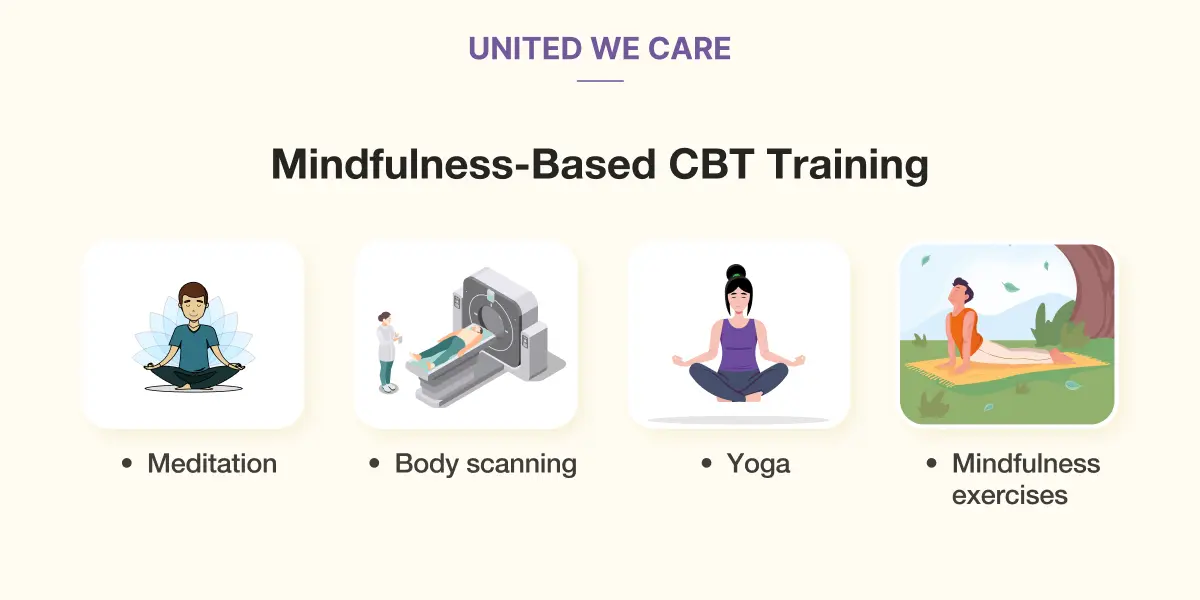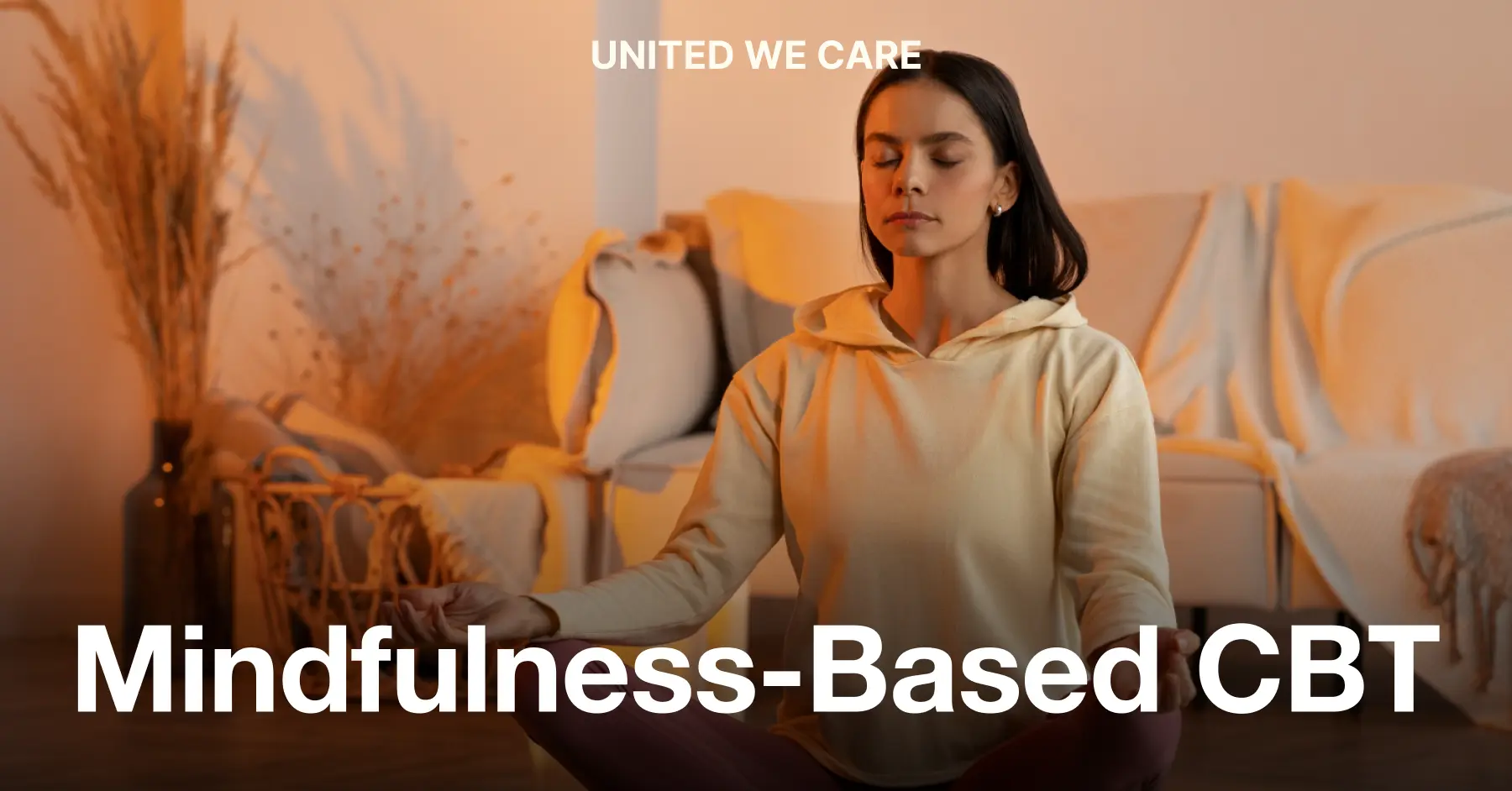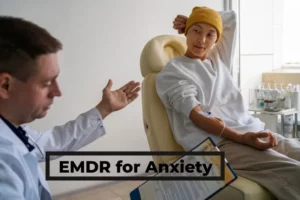Introduction
In recent years, there has been a surge in interest in mindfulness, although most people need a clearer understanding of its life-changing benefits. At its core, mindfulness is being fully aware of what you’re doing while you’re doing it, not just in the present moment. Mindfulness strategies combined with cognitive behavioral therapy techniques give rise to mindfulness-based cognitive therapy (MBCT), which is most effective in preventing relapse of depression.
In this blog, we’ll learn about mindfulness, its integration with CBT, and the techniques used as part of MBCT.
What Is Mindfulness-Based CBT?
Let’s try to deconstruct the idea of mindfulness before going further into how it helps in psychotherapy. Mindfulness is focusing on the here and now in a non-judgmental manner and being aware of how your existing habits and patterns affect you, your emotions, and the world around you. Dr. Tamara Russell, a clinical psychologist and neuroscientist, defines mindfulness as “Awareness + 3,” or ordinary awareness skills enhanced by being [1].
- Fully directed to the present moment.
- Non-reactive (curious but calm)
- Non-judgemental (compassionate)
Dr Russell also adds that mindfulness also works better when it is done in the service of something and with an attitude of kindness towards oneself. This definition truly captures ‘what’ is being done at the moment, ‘how’ it is done, and the ‘why’ that lies behind it.
Worldwide, services for mental and physical health now include mindfulness. MBCT was created at Oxford University in the 1990s by research clinicians Zindel Segal, Mark Williams, and John Teasdale as a way to expand on cognitive therapy [2].
The researchers believed that by combining cognitive therapy with mindfulness-based stress reduction (MBSR) treatment, a method created in 1979 by Jon Kabat-Zinn, they might more successfully lower the risk of relapsing into depression.
The key to mindfulness-based CBT training was not just understanding the negative thought patterns that sustained depressed moods but also paying attention to the body and learning to endure feelings. Other key elements are paying attention to the negative thoughts from the get-go to nip them in the bud from spiraling and also the compassionate behavior of the trainer or facilitator.
What Is Mindfulness-Based CBT Training?

Mindfulness-based CBT training builds on CBT and mindfulness tools to help people focus on their thoughts and emotions in a non-judgmental way. The following methods are employed in MBCT:[3]
- Meditation: Whether it be self-directed or guided, meditation may help you become more conscious of your thoughts, body, and breathing patterns.
- Body scanning: Begin the body scan exercise by lying down and focusing on various body regions. You might start at your toes and work your way up to the top of your head.
- Mindfulness exercises: Being mindful involves practicing awareness of the present moment in day-to-day living.
- Yoga: MBCT promotes the practice of several yoga positions, which may help practitioners become more aware of their bodies. Another useful technique is the three-minute breathing space technique, which consists of three one-minute steps:
- Observe how you feel.
- Concentrating on your breathing
- Being aware of your body and physical sensations
Why Is Mindfulness-Based CBT So Useful?
- Mindfulness promotes health and has been shown to effectively reduce symptoms of depression, anxiety, and other mood disorders.[4]
- MBCT also improves the well-being of people with diabetes, cancer, chronic pain, and epilepsy, according to research.
- To make room for an informed state of self, MBCT aims to help individuals identify their sense of self and detach from their thoughts and emotions.
- People who are unable to break away from unhelpful thought patterns might benefit from this distance.
- One may also learn via the MBCT process that although emotions and the self can coexist, they don’t always have to live in the same dimension. They can learn to disarm unfavorable moods by introducing good concepts into them after realizing that thoughts, emotions, and the self are separate entities, which can facilitate recovery.
How Mindfulness-Based CBT Is Different From CBT
Therapy procedures are customised specifically for each patient, taking into account what is most beneficial to their overall health. As previously indicated, while both CBT and MBCT assist people in becoming aware of their thought patterns and modifying their behavior in response to stimuli, MBCT is more successful in empowering the person by increasing their self-awareness. [5]
MBCT cannot alter negative thoughts. Rather, it helps the individual to view the problem from a wider angle and educates them that their opinions are not facts. With MBCT, individuals may learn to fully understand any emotion they are feeling at any given time without becoming caught up in depressive or anxious thinking patterns.
The decentering of the individual’s thoughts is a distinguishing feature of MBCT that distinguishes it from CBT.
Conclusion
The current surge in interest in mindfulness within the changing field of well-being is indicative of a shared desire for a more aware and contented life. Dr. Tamara Russell’s smart formula, “Awareness + 3,” sums up this transforming technique well. MBCT is a simple and powerful therapy to transform your interaction with the self and the outside world. When you apply mindfulness with intention and compassion, it becomes an effective tool for navigating the challenges of your life. If you are struggling with any mental health concerns, book a session with one of our trained mental health and wellness experts at UWC for help.
References
[1] Tamara Russell, What is Mindfulness?. [Online]. Available: https://books.google.co.in/books/about/What_is_Mindfulness.html?id=V_omvgAACAAJ. Accessed: Dec. 22, 2023.
[2] Institute for Mindfulness, “What is MBCT (Mindfulness-Based Cognitive Therapy)?” [Online]. Available: https://www.institute-for-mindfulness.org/offer/mbct/what-is-mbct. Accessed: Dec. 22, 2023.
[3] S. E. Sauer-Zavala, E. C. Walsh, T. A. Eisenlohr-Moul, et al., “Comparing Mindfulness-Based Intervention Strategies: Differential Effects of Sitting Meditation, Body Scan, and Mindful Yoga,” Mindfulness, vol. 4, pp. 383–388, 2013. [Online]. Available: https://doi.org/10.1007/s12671-012-0139-9. Accessed: Dec. 22, 2023.
[4] W. E. B. Sipe and S. J. Eisendrath, “Mindfulness-Based Cognitive Therapy: Theory and Practice,” The Canadian Journal of Psychiatry, vol. 57, no. 2, pp. 63-69, 2012. [Online]. Available: https://doi.org/10.1177/070674371205700202. Accessed: Dec. 22, 2023.
[5] V. Manicavasgar, G. Parker, and T. Perich, “Mindfulness-based cognitive therapy vs cognitive behaviour therapy as a treatment for non-melancholic depression,” Journal of Affective Disorders, vol. 130, no. 1–2, pp. 138-144, 2011. [Online]. Available: https://doi.org/10.1016/j.jad.2010.09.027. Accessed: Dec. 22, 2023.










